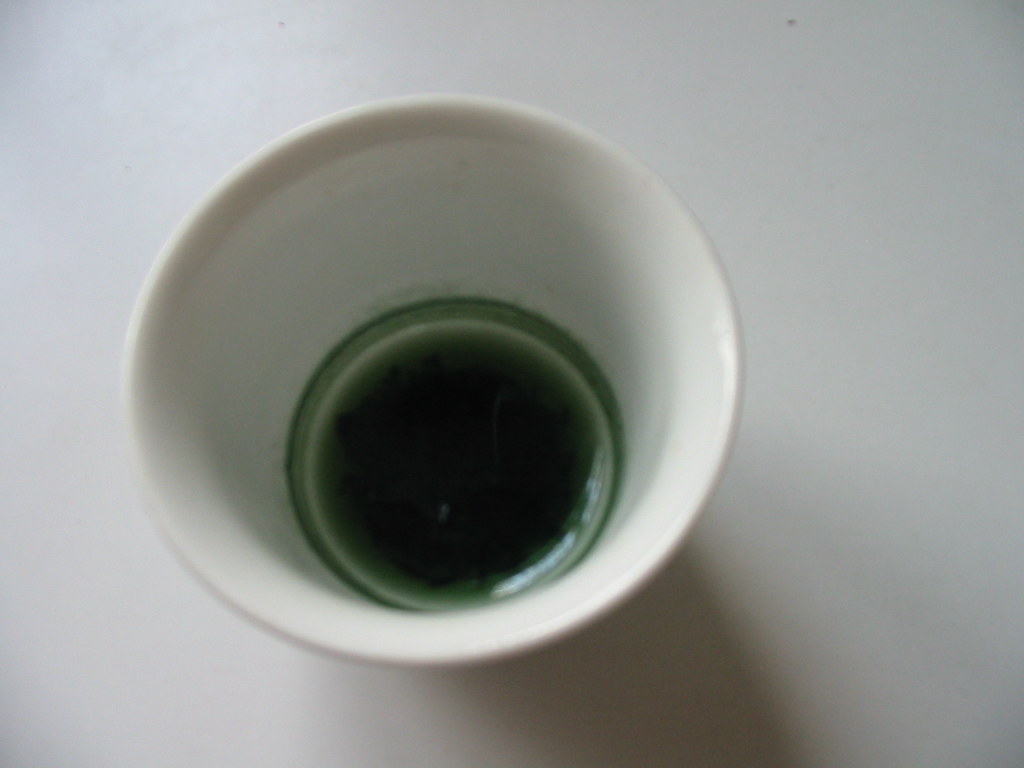15 Amazing Health Benefits of Mugwort Tea

Mugwort (Artemisia vulgaris) is an ancient herb known for its medicinal properties and has been used in traditional medicine for centuries. It has roots in various cultures, particularly in Chinese, Korean, Japanese, and European folk medicine, where it was used to treat a wide range of ailments, from digestive disorders to menstrual discomfort. One of the most common ways to consume mugwort is through mugwort tea, a soothing herbal infusion known for its numerous health benefits. The tea is made from the dried leaves of the mugwort plant and has a slightly bitter, earthy taste with hints of sweetness.
Mugwort tea is rich in antioxidants, vitamins, and essential oils, making it a potent natural remedy for various health conditions. In this article, we’ll explore 15 amazing health benefits of mugwort tea and how it can improve your well-being.
1. Supports Digestive Health
Mugwort tea is well-known for its ability to support digestive health. The herb has bitter compounds that stimulate the production of digestive enzymes and bile, which help improve digestion and relieve symptoms like bloating, indigestion, and constipation. Drinking mugwort tea before or after meals can aid in the breakdown of food and promote better nutrient absorption.
The tea’s mild laxative properties can also help regulate bowel movements, making it an effective natural remedy for those who suffer from occasional constipation.
2. Eases Menstrual Discomfort
One of the most well-known traditional uses of mugwort tea is for alleviating menstrual pain and regulating the menstrual cycle. Mugwort has emmenagogue properties, meaning it can help stimulate blood flow in the pelvic area and uterus. This makes it particularly useful for women who experience irregular periods, cramping, or delayed menstruation.
Drinking mugwort tea may help relieve PMS symptoms, including bloating, fatigue, and mood swings, while promoting a more regular menstrual cycle. However, it’s important to note that pregnant women should avoid consuming mugwort as it may stimulate uterine contractions.
3. Promotes Relaxation and Reduces Anxiety
Mugwort tea is known for its calming and relaxing properties, making it a great option for reducing stress and anxiety. The herb contains compounds like thujone and cineole, which have mild sedative effects that help relax the nervous system and promote a sense of calm.
Drinking mugwort tea in the evening can help ease tension and promote better sleep quality, making it a natural remedy for insomnia or restlessness. The tea’s soothing effects on the mind and body can help reduce anxiety levels and improve overall mental well-being.
4. Boosts Immune System
Mugwort tea contains powerful antioxidants and antimicrobial compounds that can help boost the immune system and protect the body from infections. The tea is rich in vitamins and flavonoids that work to neutralize free radicals and reduce oxidative stress, which can weaken the immune response.
Regular consumption of mugwort tea may help strengthen the immune system and reduce the risk of developing colds, flu, and other viral or bacterial infections. Additionally, the tea’s anti-inflammatory properties can help soothe sore throats and reduce symptoms of respiratory infections.
5. Improves Liver Health
The liver is responsible for detoxifying the body and eliminating harmful substances, and mugwort tea can help support liver function. Mugwort has been traditionally used to promote liver detoxification by stimulating the production of bile, which aids in the digestion and breakdown of fats.
By improving liver function, mugwort tea helps the body eliminate toxins more effectively, which can lead to better overall health. The herb’s hepatoprotective properties may also help protect the liver from damage caused by toxins, alcohol, or medications.
6. Supports Respiratory Health
Mugwort tea has antimicrobial and anti-inflammatory properties that can help support respiratory health. It has been used traditionally to treat respiratory conditions like asthma, bronchitis, and coughs. The tea’s ability to clear mucus from the lungs and ease congestion makes it a useful remedy for cold and flu symptoms.
Additionally, the tea’s natural antiseptic properties help reduce infections in the respiratory tract, making it beneficial for individuals dealing with chronic respiratory issues.
7. Relieves Joint Pain and Inflammation
Mugwort tea has been traditionally used to relieve joint pain and reduce inflammation in the body. The herb’s anti-inflammatory properties make it effective in treating conditions like arthritis and rheumatism. Drinking mugwort tea can help alleviate pain and improve mobility in individuals suffering from joint discomfort.
The tea may also help reduce muscle soreness and stiffness, making it a natural remedy for those recovering from exercise or dealing with chronic pain conditions.
8. Enhances Dream Clarity and Lucid Dreaming
Mugwort has long been associated with dream enhancement and is known for its ability to promote vivid dreams and even lucid dreaming. Drinking mugwort tea before bed can stimulate the brain’s dream centers, leading to clearer, more vivid dreams.
Lucid dreaming, the state in which a person becomes aware they are dreaming and can control the dream, is often reported by those who consume mugwort tea regularly. This unique benefit makes mugwort tea a favorite among those who practice dreamwork or are interested in exploring their subconscious mind.
9. Promotes Healthy Skin
The antioxidant and anti-inflammatory properties of mugwort tea can help promote healthy skin by protecting skin cells from damage caused by free radicals and reducing inflammation. Mugwort tea has been used in traditional Korean skincare as an ingredient in topical treatments for eczema, psoriasis, and other skin conditions.
Drinking mugwort tea can help soothe redness, reduce irritation, and promote a clearer complexion from within. Additionally, the tea’s antimicrobial properties can help combat acne and improve overall skin texture.
10. Aids in Weight Loss
Mugwort tea may also be beneficial for those looking to manage their weight. The tea has mild diuretic properties, which help the body eliminate excess water weight and reduce bloating. Additionally, the tea’s ability to improve digestion and increase the production of digestive enzymes can aid in the breakdown of fats and promote better metabolism.
By improving digestion and reducing water retention, mugwort tea can support weight loss efforts when combined with a balanced diet and regular exercise.
11. Supports Heart Health
Mugwort tea is rich in antioxidants that can help protect the heart by reducing oxidative stress and inflammation. By improving circulation and supporting healthy blood flow, mugwort tea can help regulate blood pressure and reduce the risk of cardiovascular diseases like heart attack and stroke.
The tea’s ability to lower inflammation in the blood vessels can also help improve overall cardiovascular health, making it a great addition to a heart-healthy lifestyle.
12. Regulates Blood Sugar Levels
For individuals with diabetes or those at risk of developing the condition, mugwort tea may offer some benefits in regulating blood sugar levels. The herb’s ability to stimulate digestion and improve insulin sensitivity can help manage blood sugar spikes after meals.
While mugwort tea should not replace medical treatment for diabetes, it can be used as a complementary remedy to help maintain stable blood sugar levels and reduce the risk of complications related to high blood sugar.
13. Helps with Allergies
Mugwort tea has antihistamine properties that may help reduce the symptoms of seasonal allergies. The herb’s anti-inflammatory and antihistamine effects can help alleviate symptoms like sneezing, itching, and nasal congestion caused by hay fever or other allergic reactions.
Drinking mugwort tea during allergy season may provide relief from mild allergic symptoms and help reduce the body’s overall histamine response.
14. Promotes Detoxification
Mugwort tea is known for its ability to support the body’s natural detoxification processes. The tea’s mild diuretic properties help flush toxins from the body by promoting urine production and supporting kidney function. Additionally, mugwort tea stimulates bile production in the liver, aiding in the digestion and breakdown of fats.
Regular consumption of mugwort tea can help cleanse the body of accumulated toxins and improve overall health and vitality.
15. Improves Appetite
For individuals dealing with loss of appetite due to illness, stress, or other factors, mugwort tea can help stimulate appetite and improve digestion. The herb’s bitter compounds stimulate the production of digestive enzymes and bile, which can help improve food cravings and make meals more enjoyable.
Drinking mugwort tea before meals can help increase appetite and promote better digestion, making it a useful remedy for those recovering from illness or dealing with appetite loss.
Conclusion
Mugwort tea is a versatile and potent herbal infusion with a wide range of health benefits, from supporting digestive health to promoting healthy skin, improving sleep, and even enhancing dreams. Rich in antioxidants, vitamins, and essential oils, this ancient herb has long been used in traditional medicine to treat various ailments and promote overall well-being.
Whether you’re looking to soothe digestive discomfort, ease menstrual pain, reduce stress, or enhance your dream experience, mugwort tea offers a natural and holistic way to improve your health. However, as with any herbal remedy, it’s important to consult a healthcare professional before incorporating mugwort tea into your routine, especially if you are pregnant, breastfeeding, or taking medications.
By incorporating mugwort tea into your daily wellness regimen, you can enjoy the numerous benefits this ancient herb has to offer while supporting your body’s overall health and balance.


